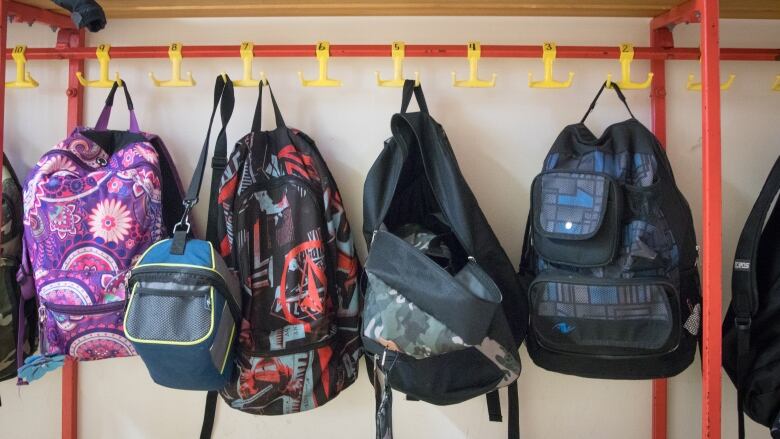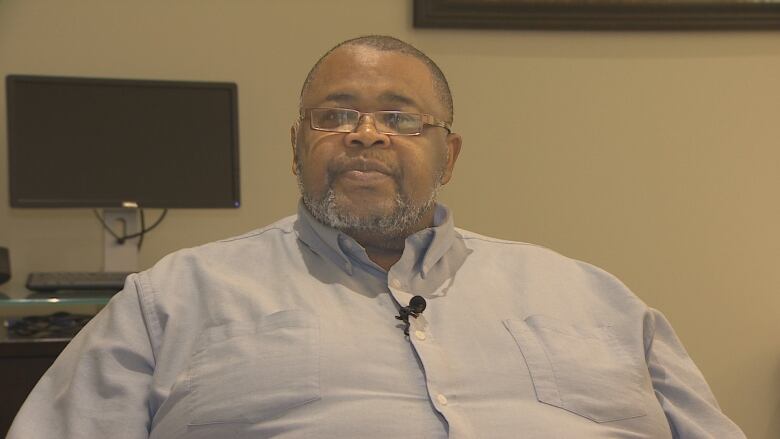Racist, discriminatory incidents on the rise in Halifax-area schools
'What happens in society spills over into the school,' says board representative Archy Beals

The number of reported incidents of racist and discriminatory behaviour at schools in the Halifax Regional School Board increased last year, a new report shows.
In 2016-2017, 360 such incidents were reported, up from 327 the year before. But no one issure why.
"I think even if the numbers were lower, it would have been a shock because it's 2017," the board's African-Nova Scotian representative Archy Beals said in an interview Wednesday.
In 2016-2017, 184 of the incidents happened at the elementary school level while 176 happened at the secondary level, the report from board staffshows.
Staff presented the report to the board Wednesday night.
High numbers a concern
This is the first time the board has received this data. Board member Jennifer Raven requested the report last November after she heard about what she called "extremely disturbing incidents" at the elementary school level.
"You don't know how big a problem is until you start measuring it," Raven said in an interview after Wednesday'sschool board meeting. "When I heard there were things at a very young grade level, as a parent, I was shocked."
Raven said at some point, she would like to make a motion for an annual report.
Beals said the numbers are a concern.
"We have incidents that are on the rise and we really need to look at how we deal with these incidents," he said.

"And we know that schools are a microcosm of society and what happens in society spills over into the schools. So we have a responsibility and an accountability to not only to the community but also to students to ensure that we address these issues."
Incidents Beals has heard about extend beyond the African-Nova Scotian and Indigenous communities.
"We're looking at all incidents pertaining to the transgender community, the immigrant community looking at it from a multi-faceted and a broader perspective," he said.
No student should be victimized
At the end of the day, Beals said, no student should have to "bear the brunt" of racist or discriminatory behaviour.
The report does not break down the nature of the incidents or the background of the students involved. Board chair Gin Yee confirmed Wednesday that the board never asked for those details.
Yeesuggested after the meetingone of the reasons for the apparent increase in thenumber of racist and discriminatory incidentsis because they are nowbeing documented correctlyon PowerSchool, thanks to improved training for staff.
Schools are required to record and track incidents of unacceptable behaviour through the provincial online student information database. Schools are also expected to respond to these incidents and take steps to address consequences and help the student develop more positive behaviour, the report says.

"I think overall there will always be questions on the data," Yee said. "Does it actually truly represent Halifax Regional School Board? At the end of the day, they're using the data from PowerSchool to better our students."
But any number of racial incidents in schools whether it's 300 or one is too much, Yee said.
He said he's concerned about the increase and plans to ask staff why this is happening.
After digesting the report, the board will have to decide what steps to take next. "Potentially, this report could be a baseline for this year, then we can ask staff to get back to us in one year from now," Yee said.
Like Raven, Yee said he would also be interested in an annual report.
'Troubling and worrisome'
Nova Scotia's Education Minister Zach Churchill also suggested the increase in incidencesoutlined inthe report could be the result ofimproved reporting by educators and school staff.
"Obviously that information is troubling and worrisome," he told reporters Thursday. "I do want to note, though, that there's been a lot of work gone into training our educators in school communities in terms of reporting acts as being specifically discriminatory or racist, whereas before some of these things may've just been categorized as bullying or something more general."
As more data is collected over time, Churchill said the province will be able to use that information to better inform policy, curriculum developmentandtraining.
"We need our schools to be places of acceptance and safety for every single one of our kids, no matter what their economic background, their race, their gender, their sexual orientation," he said.
Wide range of punishments
Punishments for discriminatory behaviour can range from a meeting with the student and parent to mediation to asuspension. And, on top of the consequences under the provincial school code of conduct, school board staff have supports in place, including diversity teams and a safe schools consultant, to address this behaviour.
The Halifax board was also the first in the province to report data about the achievement gaps and the staggering number of African-Nova Scotian students on individual program plans.
With files from Emma Davie












_(720p).jpg)


 OFFICIAL HD MUSIC VIDEO.jpg)
.jpg)



























































































